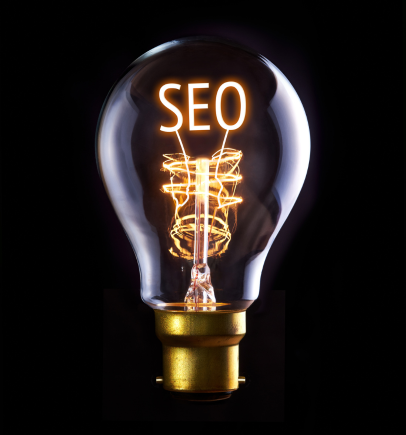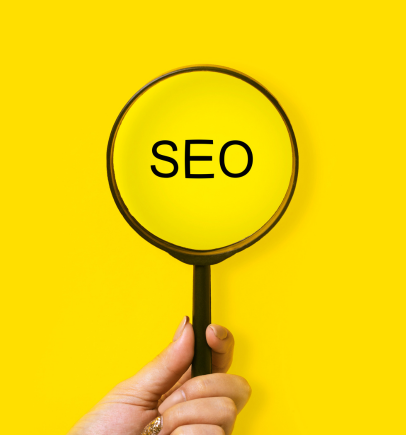Complete SEO Guide for Beginners
May 22, 2024

SEO (Search Engine Optimization) is an essential discipline for anyone or any business wanting an online presence. Through SEO, you can improve your website's visibility in search engines, attract more visitors, and convert those visitors into customers or followers. In this complete SEO guide for beginners, we'll break down everything you need to know to start optimizing your website and achieve your online goals.
What is SEO?
SEO, or Search Engine Optimization, is the set of techniques and strategies used to improve a website's position in the organic search results of search engines like Google, Bing, and Yahoo. Good SEO helps increase a website's visibility, generating more traffic and, potentially, more revenue.
The Importance of SEO
SEO is crucial for several reasons:
Visibility and Web Traffic: Appearing in the top search results significantly increases the chances of being seen by users.
Credibility and Trust: Users trust websites that appear in the top positions of search engines more.
Cost-Effectiveness: Organic traffic is free, meaning that, in the long run, SEO can be more cost-effective than paid advertising.
User Experience: SEO isn't just about search engines but also about improving the user experience on your website.
Main Components of SEO
1. On-Page SEO
On-Page SEO refers to all the actions you can take within your website to improve its position in search results. This includes:
Keywords: Identifying and using the right keywords that users are searching for.
Title Tags and Meta Descriptions: Creating attractive titles and descriptions that include keywords.
Quality Content: Creating relevant, useful, and high-quality content that meets users' needs.
Site Structure: Ensuring your site has a logical and easy-to-navigate structure.
Image Optimization: Using ALT tags and compressing images to improve load speed.
2. Off-Page SEO
Off-Page SEO refers to all the activities carried out outside your website to improve its position in search results. These include:
Backlinks: Obtaining quality links from other websites to yours.
Social Media: Using social media to promote your content and attract traffic to your website.
Influencer Marketing: Collaborating with influencers to promote your website.
Mentions and Reviews: Encouraging positive mentions and reviews of your website on other platforms.

3. Technical SEO
Technical SEO refers to optimizing your website's infrastructure to facilitate its crawling and indexing by search engines. This includes:
Site Speed: Ensuring your website loads quickly.
Mobile Optimization: Ensuring your website is optimized for mobile devices.
Site Security: Implementing HTTPS to secure the connection.
Sitemap: Creating and submitting an XML sitemap to search engines.
URL Structure: Using friendly and descriptive URLs.
Essential SEO Tools
Google Analytics: To monitor your website's traffic and user behavior.
Google Search Console: To check your site's presence in Google's search results.
SEMrush: For competitive analysis and keyword research.
Ahrefs: To analyze backlinks and your competitors' SEO strategy.
Moz: For SEO audits and keyword tracking.

Steps to Implement an SEO Strategy
Keyword Research: Use tools like Google Keyword Planner or SEMrush to identify the most relevant keywords for your niche.
Content Optimization: Create and optimize your website's content using the identified keywords.
Link Building: Establish relationships with other websites to get quality links to your site.
Monitoring and Analysis: Use analytics tools to monitor your website's performance and adjust your strategy as needed.
Continuous Improvement: SEO is an ongoing process. There are always new opportunities to improve and optimize.
Conclusion
SEO is a complex but essential discipline for anyone or any business wanting to succeed online. With this complete SEO guide for beginners, you now have the basic knowledge to start optimizing your website. Remember that SEO is an ongoing process that requires patience, constant analysis, and strategy adjustments. Good luck on your SEO journey!
 SEO (Search Engine Optimization) is an essential discipline for anyone or any business wanting an online presence. Through SEO, you can improve your website's visibility in search engines, attract more visitors, and convert those visitors into customers or followers. In this complete SEO guide for beginners, we'll break down everything you need to know to start optimizing your website and achieve your online goals.
SEO (Search Engine Optimization) is an essential discipline for anyone or any business wanting an online presence. Through SEO, you can improve your website's visibility in search engines, attract more visitors, and convert those visitors into customers or followers. In this complete SEO guide for beginners, we'll break down everything you need to know to start optimizing your website and achieve your online goals.

